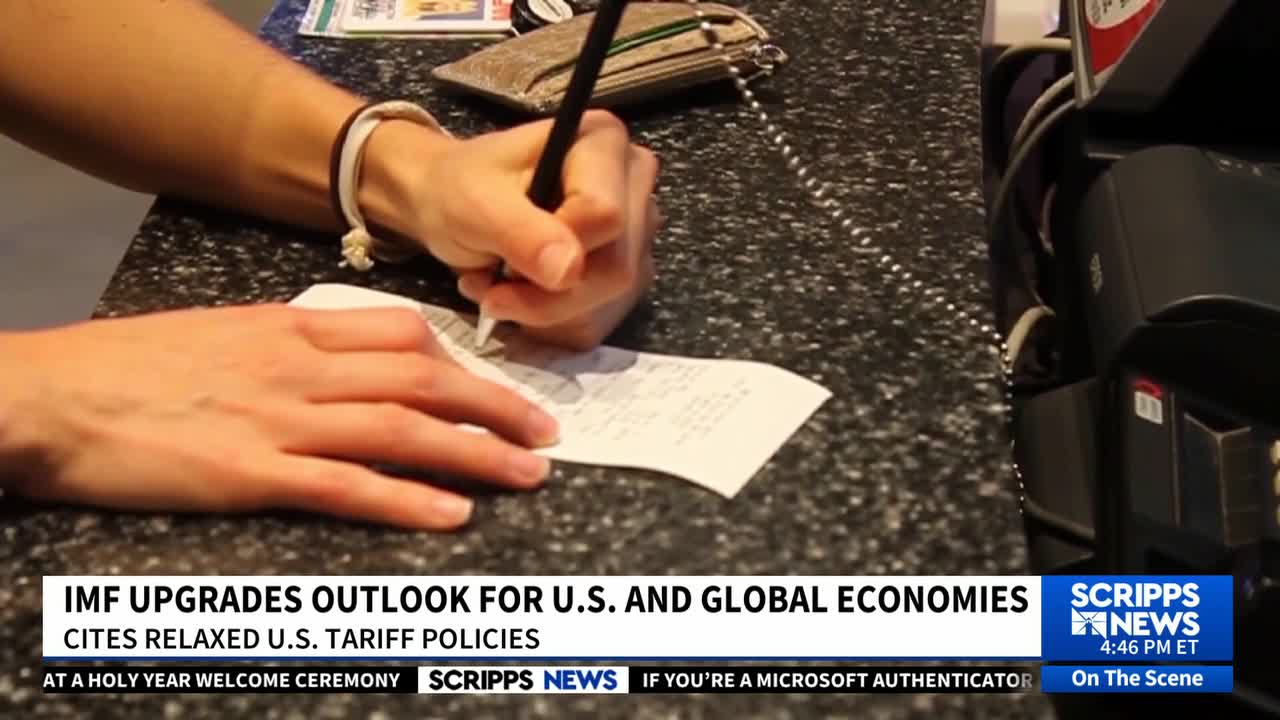A batch of new economic indicators was released Tuesday in addition to a new report from the International Monetary Fund about the global economic outlook.
The report and fresh data shed new insight into the state of the U.S. and global economies.
IMF releases global economic outlook
The International Monetary Fund projected global economic growth of 3% for 2025 in a new report released Tuesday.
That projection is down from 3.3% in 2024, but it's an improvement over the 2.8% growth it projected for the year in April, shortly after President Donald Trump initially announced widespread tariffs.
The IMF also upgraded its outlook for the U.S. economy to 1.9% growth this year. That's down from 2.8% last year but better than that 1.8% projected earlier this year.
The IMF labeled its report "Tenuous Resilience Amid Persistent Uncertainty" and noted fears of an economic slowdown eased when President Trump relaxed some previously proposed tariff policies.
"This modest decline in trade tensions, however fragile, has contributed to the resilience of the global economy so far," said IMF chief economist Pierre-Olivier Gourinchas.
China's economy is expected to grow 4.8% this year, and India's is projected to grow 6.4%.
The IMF also upped its projection on world trade growth for the year to 2.6%. That's down nearly a full point from last year but up nearly as much from April. But tariffs are projected to impact trade more next year with the IMF forecasting just 1.9% growth in trade in 2026.
U.S. consumer confidence rises slightly
American consumers are feeling marginally better about the economy.
The Conference Board's consumer confidence index inched up by two points, to 97.2 in July, up from 95.2 in June, according to new data released Tuesday.
Consumers' feelings about their current economic situation dropped slightly.
The Conference Board says consumers are still worried about tariffs and are concerned they could cause prices to increase.
The details of some pending tariffs still aren't certain, but they're still causing concern, according to Jonathan Ernest, an assistant professor of economics at Case Western University.
"People are very concerned that the products they like to buy might go up in price in the very near future and then (they're) breathing somewhat of a sigh of relief knowing that those prices might not rise quite as high as these tariff deals are announced," Ernest said.
Consumer confidence numbers are still well below where they were at the end of last year.
U.S. job openings fall
The Labor Department reported that employers posted 7.4 million open job vacancies in June.
That was down from 7.7 million in May.
Ernest says the June figure points to a "relatively stable" market but fewer job openings isn't a sign that people are finding jobs faster.
He says firms are still hesitant to hire because of uncertainty caused by tariffs.
"There's still some indecision in the air in terms of where policies are going, where tariffs are going," he said. "I think that some institutions are a bit slow to move in, hire someone, bring them into the fold. ... They want to see where things are going and have a little bit more certainty."





